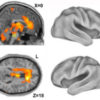Imaging internal brain activity under anesthesia has provided researchers with revealing insights into what happens when the subjective phenomenon of consciousness first vanishes and then re-emerges. Identifying which brain mechanisms are involved in the emergence of the conscious state will contribute to the ongoing quest to explain human consciousness. The work, detailed in The Journal […]










